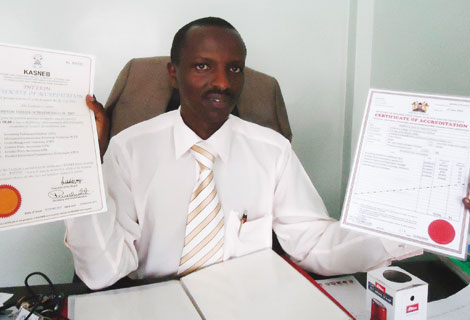×
The Standard e-Paper
Fearless, Trusted News
 |
| Achievers College of Professionals Director John Mukundi at the school’s premises in Embu County. [Photos: Joseph Muchiri/Standard] |
By Joseph Muchiri
Kenya: Would you quit formal employment to start a college without any savings for capital or knowledge on how to run a school?